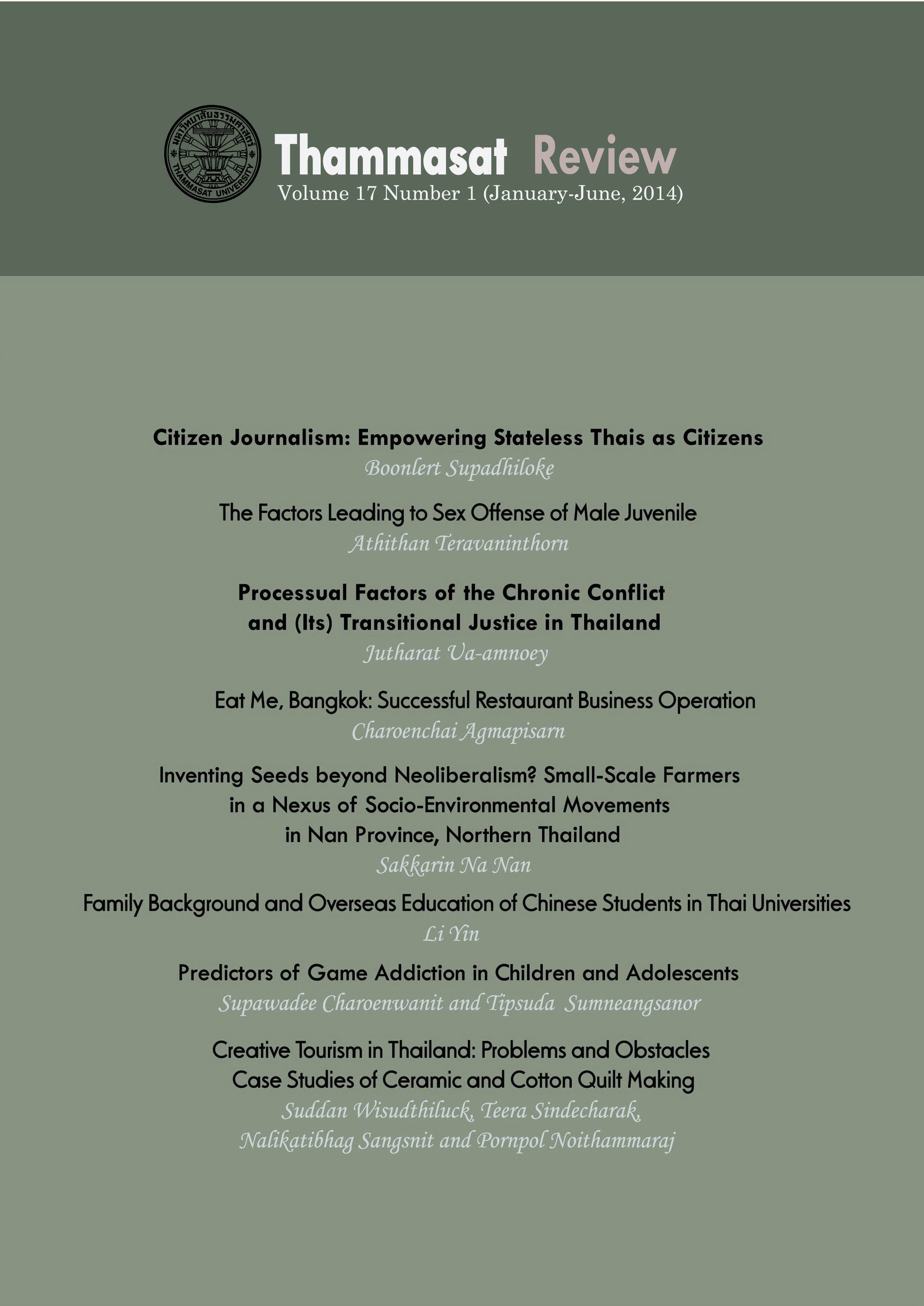Family Background and Overseas Education of Chinese Students in Thai Universities
Abstract
Based on recent surveys of overseas Chinese undergraduates in Thai universities, this paper discusses the relationship between family background and a series of decisions / results along the process of studying overseas. The findings include: lower classes origins represented by students of rural origins are more intentionally using overseas education as a way to explore opportunities abroad and are more serious about academic performances so as to enhance human potential that can help to find jobs in the labor market of the host country. In contrast, upper classes origins represented by students from state cadre families are either more likely to return and work in China upon graduation or more likely to go to a graduate school even though they have worst academic performances. Furthermore, students of rural origins with clear intent for opportunities abroad, as well as students from state cadre families in big cities, have more positive evaluations on overseas experiences. Institutional contexts were proposed to be examined together with the rational-agent perspective to shed light on these findings.
Keywords: Social Classes, Overseas Students, Thai Universities, Social Mobility
Downloads
How to Cite
Issue
Section
License
The opinions and ideas expressed in all submissions published in Thammasat Review are solely that of the author(s) and do not necessarily reflect that of the editors or the editorial board.
The copyright of all articles including all written content and illustrations belong to Thammasat Review. Any individuals or organisation wishing to publish, reproduce and distribute a particular manuscript must seek permission from the journal first.








